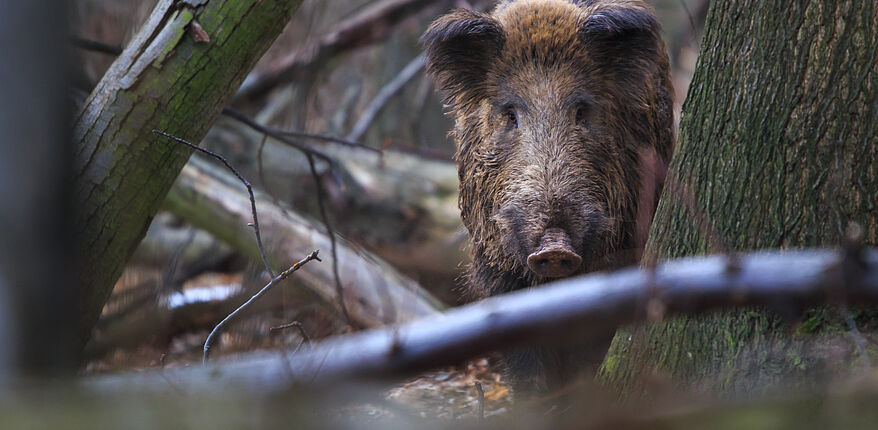Brucellosis is a bacterial disease caused by bacteria of the Brucella genus. The bacteria are found worldwide and can survive well in the environment in cool, damp and dark places, e.g. wrapped in faeces or abortion material. Depending on the species, mammals, poultry and also humans can be infected. Possible sources of infection are infected animals, contaminated green fodder or material containing the pathogen. In the initial phase after infection, the pathogen multiplies in regional lymph nodes; this phase is usually asymptomatic. This is followed by the bacteraemic phase, in which colonisation of the reproductive organs and manifestations in the bones, joints, liver, kidneys and bladder can occur. In males, it causes inflammation of the testicles and epididymis, in females it causes inflammation of the uterus, which can lead to abortion in pregnant animals.
Aujeszky's disease is caused by the Suide Herpesvirus 1 (SHV 1), which leads to lifelong infections in affected animals. Almost all pets can become infected with the virus, but there is no risk of infection for humans. The virus is infectious in the environment for a long time. Infection occurs in particular via the respiratory tract through the ingestion of pathogen-containing material such as blood, milk or meat, but also through contact with semen, aborted material or infected foetuses. Spread of the pathogen by the wind has also been described. The clinical symptoms in pigs depend on their age. While young animals have a high mortality rate with severe neurological symptoms, older animals die far less frequently and also show fewer neurological symptoms, but increasingly respiratory symptoms. Other mammal species show severe neurological symptoms due to inflammation of the brain and spinal cord, which is accompanied by severe itching. The average survival time is 2 days after infection. There is no treatment option.
For both diseases, good hygiene practices are the safest way to prevent the transmission or spread of the pathogen. Dogs should not be fed raw meat from wild boar as well as broken-up meat and sweat (blood) and contact with potentially pathogen-containing material should be kept to a minimum.
If you have any questions, please contact the Office for Health and Consumer Protection:
Telephone: 03904/7240-4318
E-mail: veterinaer-lebensmittel@landkreis-boerde.de.
